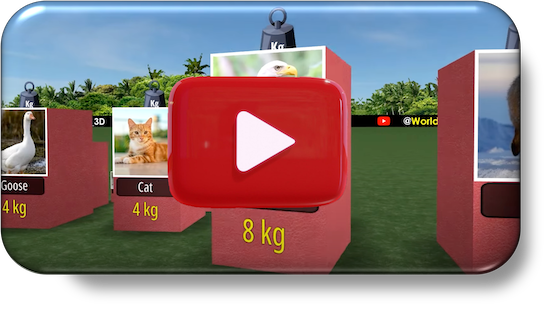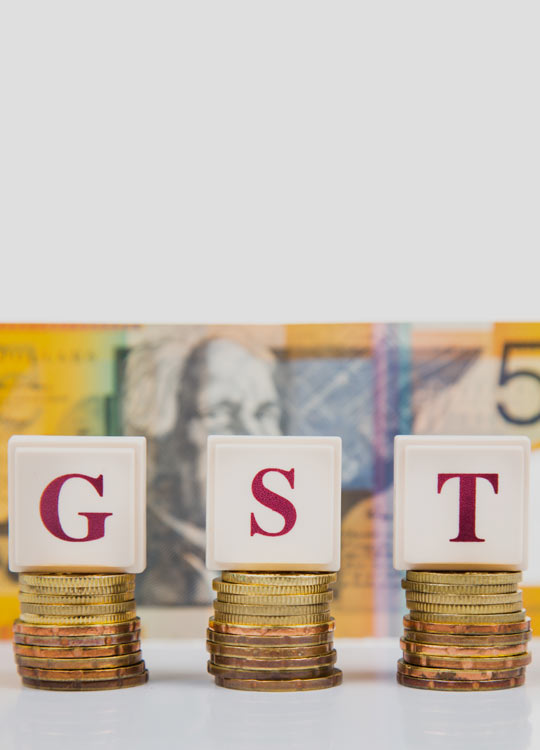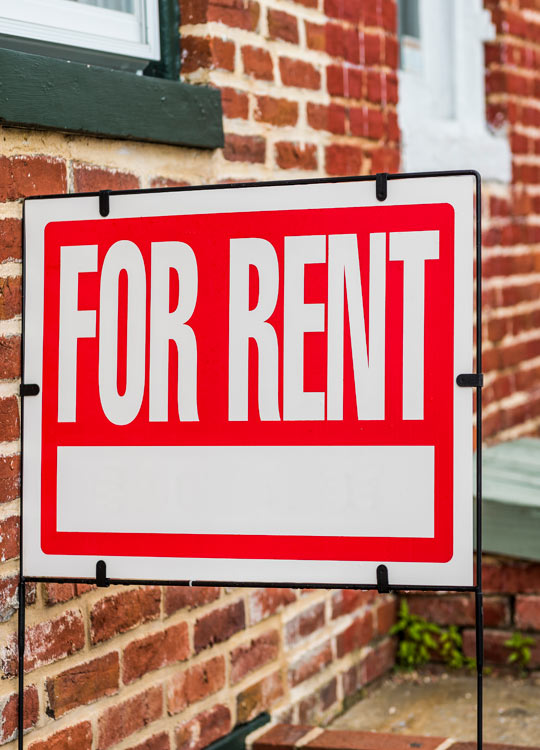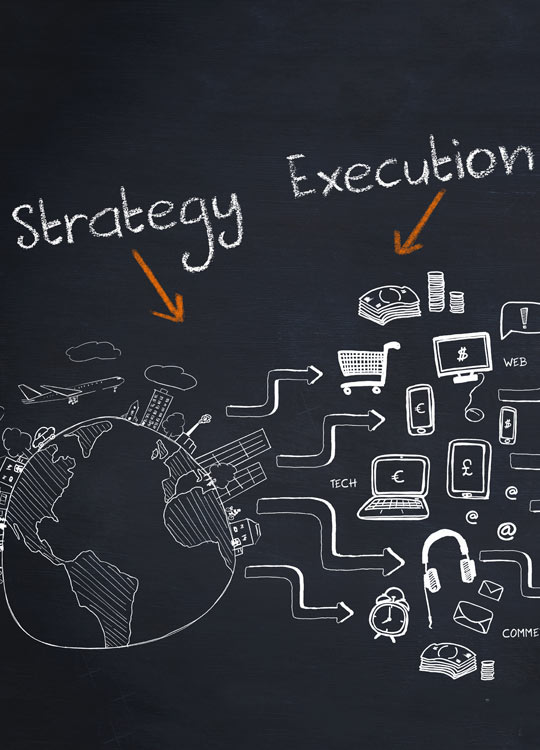Latest News
Federal budget 2022: Winners and Losers
With a federal election only a couple of months away, find out who's getting a cash boost — and who's not — in Treasurer Josh Frydenberg's latest budget.
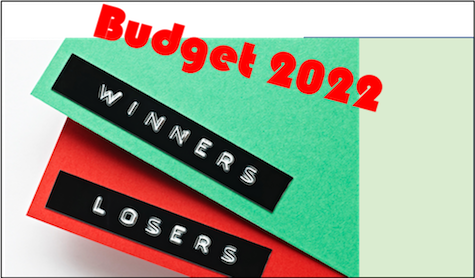
Winner – Motorists
In an effort to bring down petrol prices, the government is cutting the fuel excise — the flat tax levied on each litre of fuel — in half.
The war in Ukraine has led to an increase in oil prices and some motorists have faced paying more than $2.20 a litre for petrol.
Mr Frydenberg says the cut will last for the next six months and will save motorists 22 cents a litre when they fill up.
To make sure the cut to the fuel excise is actually passed on to motorists, and not just used by retailers to make a bigger profit, the Australian Competition and Consumer Commission (ACCC) will be keeping an eye on fuel prices.
The ACCC says that if retailers lie about passing on the tax cut and making fuel cheaper, it “will not hesitate to take appropriate enforcement action”, including hefty fines.
While cutting the excise, even temporarily, was something some state and federal MPs had called for, other groups had warned it probably wouldn't mean immediate relief at the bowser, would only help motorists and would cost the budget bottom line billions of dollars.
But regardless, Mr Frydenberg and the government have decided to half the excise.
Winners – Taxpayers
To help with the increasing cost of living, low- and middle-income earners will receive an extra $420 back on their tax returns.
The government's low and middle tax offset is also back for another year, meaning that some people may get up to $1,500 back at tax time.
The budget estimates the payments will cost the government $4.1 billion over the next couple of years.
Before the budget, Mr Frydenberg made it clear that the assistance the government was offering would be “temporary and targeted” and not ongoing.
To find out how much you'll be getting at tax time, check out our tax calculator at the bottom of the story.
Losers – Renewables
There is no new direct funding in the budget for renewable energy generation projects.
Instead, the government is investing just under $250 million over five years to support investment in low emissions technologies including hydrogen.
At the moment, creating the hydrogen to use as a fuel source produces emissions and while projects are being proposed and at various stages, it's still unclear how long it'll take to reach the scale needed for it to be a viable alternative to fossil fuels.
It's also putting $148.6 million over five years to encourage investment in “affordable and reliable power” which includes $84 million over those five years for community microgrid projects in regional and rural Australia.
The government's spend on some of its key climate change agencies including the Clean Energy Finance Corporation (CEFC) and the Australian Renewable Energy (ARENA) — both of which are tasked with investing in renewable or low emissions technologies — is set to decrease by 35 per cent over the next four years.
The budget shows that funding will go from $2 billion a year this year to $1.3 billion by 2025-26.
But that funding doesn’t include other measures outside of the CEFC or ARENA, that form the government's Long Term Emissions Reduction Plan.
Winners – Women
This year's budget includes a raft of announcements for women — including a big shake-up for the government's Paid Parental Leave (PPL) scheme.
Instead of offering two separate payments — two weeks of “Dad and Partner Pay” and 18 weeks of “Parental Leave Pay” — the two will now be combined, meaning parents can choose to split the leave between them in whatever way they'd like.
“It will assist to promote equality between mothers and fathers and empower families to make their own decisions without being restricted by policy settings defined by 'primary' or 'secondary' carers,” the budget says.
The budget specifically says it's hoped the change will provide more of an incentive for fathers to use parental leave as well.
The government's also changing the scheme so that single parents will be able to access the full 20 weeks of leave and given the ABS estimated last year that 81 per cent of single parents are women, it'll no doubt help potentially thousands of women.
It's also adjusting the income test to include a household income threshold of $350,000 a year.
The government wants the new PPL scheme in place by March next year but has said it'll engage and consult with stakeholders before then.
According to the budget, the cost of the changes will be $346.1 million over five years.
What's not in the changes, though, is any payment of superannuation on PPL — something advocates have been pushing for in an attempt to close the superannuation gap between men and women at retirement.
When it comes to women's health, the government had already flagged a couple of key budget measures.
One of the new measures in the budget though is the listing of Trodelvy, a medication used to treat a rare form of breast cancer, on the Pharmaceutical Benefits Scheme, meaning some women will save tens of thousands of dollars.
It'll put $58 million over the next four years toward helping women with endometriosis — it includes $16 million for a specialised clinic in each state and territory, $25 million to cover the cost of MRIs under Medicare and $5 million to develop an Endometriosis Management Plan to support women with the disease.
Genetic testing for several conditions for couples who are planning to get pregnant is also going to become free as part of a new $181 million program.
Tests for conditions including cystic fibrosis, spinal muscular atrophy and fragile X syndrome can cost between $250 to $450, but will be free under Medicare (in most circumstances) from November next year.
According to the budget, the government's pledging $1.3 billion over the next six years toward a broad range of measures and programs that have been identified in the National Plan to End Violence Against Women and Children.
As part of that, it's putting $54.6 million over the next five years toward the Keeping Women Safe in their Homes program, which will focus on giving women technology to check if people who've experienced domestic violence are being tracked.
There's been a big increase in the number of women who have been subjected to technology-based abuse like having their phones tracked or having hidden cameras installed in things like toys in their homes.
The money will go into a couple of different programs which help women who have experienced domestic and family violence to check for spyware on their phones and computers and sweep their homes for hidden cameras.
While the government's announcements see extra funds for several programs, advocates and experts have consistently argued significant and long-term funding is needed for the sector.
Last year, Women's Safety NSW estimated the sector needed $1 billion a year in funding just to meet frontline services.
The peak body run by and for women with disability said it were disappointed the budget did not include any targeted measures to address the “violence, abuse and discrimination experienced by women and girls with disability”.
In a statement, Women With Disability Australia's (WWDA) executive director Carolyn Frohmader raised concerns about “the ability of mainstream programs to address the unique and insidious forms of violence experienced by women with disability”.
“Compared to their peers, women and girls with disability experience significantly higher levels of all forms of violence, more intensely and [more] frequently, and are subjected to violence by a greater range of perpetrators and in a larger range of settings,” Ms Frohmader said.
Neutral – Aged Care
There are a few more bits and pieces for aged care in this year's budget, after last year's huge $17.7 billion funding announcement.
But despite repeated calls from the sector, the government has given no indication in the budget that it's prepared to increase aged care workers' pay.
The aged care royal commission, which handed down its report last year, warned the sector has a shortage of workers and the ones who are there are under-recognised, underpaid and under-skilled.
The government has refused to get behind a case to increase wages in the Fair Work Commission, something one of the aged care royal commissioners, Lynelle Briggs, criticised as “short-sighted”.
Instead, the budget includes $49.5 million to subsidise 15,000 vocational education and training places for those who are already in or are looking to enter the aged care workforce.
It's one of the ways the government is hoping to stop workers leaving the sector and follows an announcement earlier this year that current workers would get two bonus payments of $400.
The government's also putting $340 million to embed pharmacy services in residential aged care homes in a bid to improve how medication is managed within the facilities.
Winners – Regional Australia
Regional Australia gets a massive sugar hit in this Budget, with billions of dollars set aside for what the Deputy Prime Minister has described as “nation-building infrastructure projects”.
The Nationals leader Barnaby Joyce has announced there'll be $7.1 billion over 11 years for a new 'Energy Security and Regional Development Plan'.
That money will go towards co-investment with states and territories, or private companies, in everything from upgrading ports and roads to building dams and logistic hubs in north and central Queensland, the Hunter in New South Wales, the Northern Territory and the Pilbara region of Western Australia.
There's also $2 billion for a new “Regional Accelerator Program”, which simply brings together existing schemes designed to improve skills, education, exports and supply chains in the regions.
And there's $800 million in new money to improve mobile phone coverage in the bush.
Losers – Wages
In bad news for people's pay packets, real wages are not forecast to grow until later this year at the earliest thanks to higher-than-expected inflation.
At the end of last year, Treasury predicted the inflation rate would be 2.75 per cent. The reality has ended up being around 4.25 per cent.
The budget is predicting wages will only be just higher than inflation in the next couple of years, meaning cost of living pressures are unlikely to ease any time soon.
Despite current price hikes, the budget is forecasting inflation will taper off and wages will grow faster by the middle of the decade.
Winners – Refugees
While the government is keeping the humanitarian program capped at 13,750 — the same as the previous two years — it has announced extra places for Afghan nationals.
The budget includes $665.9 million over the next four years for an additional 16,500 places for people fleeing from Afghanistan.
In January, the Immigration Minister Alex Hawke announced the government would allocate 15,000 visas over four years for Afghan nationals fleeing the Taliban — 10,000 within the humanitarian program and 5,000 within the family stream.
It means Australia will offer more than 30,000 refugee visas to Afghan nationals over the next four years.
As for Ukrainian refugees, earlier this month, Mr Morrison announced a program to allow people on temporary humanitarian visas to stay in Australia for up to three years.
It means that around 5,000 Ukrainians who have been granted other visas to come to Australia — including student, tourist, skilled migrant and family reunion visas — will have more certainty and will be allowed to work, study and access Medicare.
Mr Morrison said the government “hadn't set a limit” or cap on how many Ukrainians it would give visas to.
The government is also putting $9.2 million to extend existing youth support services for another year and $1 million over five years to create a Human Rights Advocacy Program.
Winners – Welfare Recipients
Pensioners, carers, veterans, job seekers and other eligible concession cardholders, plus some self-funded retirees, will receive a one-off payment of $250.
Like the payment for low- and middle-income earners, the extra cash is to help with the cost of living and will go to around 6 million people in the coming weeks.
But there's been no movement in the amount of money people on the JobSeeker payment will receive per week.
At the beginning of last year, the government raised the payment by $25 per week, at a cost of $9 billion over four years.
This year's budget sees no further increase.
Neutral – Environment
Other than the big spend on the Great Barrier Reef, there are a couple of other measures in the budget related to the environment.
That includes $100 million over three years for a fund to support community-driven action to help restore the environment.
One of the more novel spends is $20.3 million over the next three years to plant trees to mark the Queen's platinum jubilee.
There's also $53 million over five years for koala conservation and protection that was announced earlier this year.
And the government will give $26.8 million over five years, so just over $5 million a year, for the management and protection of Commonwealth National parks.
Winners – Indigenous Rangers
Minister for Indigenous Australians Ken Wyatt has made a big commitment to grow the workforce of Aboriginal and Torres Strait Islander rangers.
The federal government will spend $636.4 million to create an estimated 2,000 additional ranger jobs by 2028 in regional and remote parts of the country.
The new funding will also encourage more Indigenous women to begin working as rangers on land and sea country.
The Country Needs People campaign has long been calling on the government to significantly invest in doubling the Indigenous ranger workforce and said the announcement is on a “global-scale”.
The campaign's executive director Patrick O'Leary told ABC News the funding would assist traditional owners to “build and re-build” their communities in the face of climate change.
Neutral – Foreign Aid
There's been no huge increase to the underlying foreign aid budget, it'll continue to sit at around $4 billion a year.
But the government has ended a freeze on the indexation of funding which means it'll creep up by 2.5 per cent in the coming year, hitting almost $4.1 billion.
There is also an additional $460 million in so-called temporary and targeted measures, which includes things like vaccine delivery to the Pacific.
That means that the total unofficial aid budget will hit $4.549 billion this financial year – about $289 million more than was flagged in the budget last year for 2022-23.
While the official aid budget hasn't seen much movement, Australia has so far committed $156.5 million for assistance to Ukraine, both in the form of humanitarian, military and lethal aid.
Winners – First Home Buyers
The government is expanding its first home buyers scheme, where people only need to have a 5 per cent deposit to buy a house with no lenders mortgage insurance (LMI).
It's expanding the scheme from 10,000 places up to 35,000 places a year, but it comes with rules on who is eligible and how expensive the houses can be.
On top of that, it's creating a new regional housing scheme with 10,000 annual places from October 1 for first home buyers or people who haven't owned property in the last five years (including permanent residents).
This new scheme is aimed at encouraging construction in regional areas. To access it, people have to either build or buy a newly built home in a designated regional area.
The budget also includes money to extend the Family Home Guarantee scheme which, while not exclusively for first home buyers, is aimed at helping single parents either buy their first house or re-enter the property market.
The scheme means eligible people only have to come up with a 2 per cent deposit to buy a house and not pay LMI.
Last year, the government announced it would offer 10,000 places over four years — it's now adding 5,000 extra places a year.
The cost of all three schemes will be $8.6 million over the next four years.
While the move will mean more people may be able to buy a home sooner, experts have warned it won't do anything to solve housing affordability.
The government had also been urged by the NSW Liberal government, among others, to consider reviewing tax breaks for property investors to give first home buyers a better chance at getting in the market.
Neutral – Apprentices
While the budget has good news for apprentices, it also sees the existing incentives for employers of apprentices sharply decrease.
A new incentive scheme is being created to encourage businesses to put on more apprentices and hand new apprentices some cash.
But the bad news is that it's less generous than the incentive scheme due to end in just a few months.
The Boosting Apprenticeship Commencement scheme will end on June 30, as foreshadowed by the government.
It offers employers a 50 per cent wage subsidy for apprentices in their first year, up to $28,000, then tapers off in the years afterwards.
The new Australian Apprenticeships Incentive Scheme will replace it. It will offer lower wage subsidies — 10 per cent for first and second-year apprentices and 5 per cent for third-years — and it's restricted to a list of “priority” occupations.
If you're hiring someone for a “non-priority” occupation, you can get a one-off payment of $3,500.
There's a big sweetener for apprentices starting training though. If they're in a priority occupation, they'll get $5,000 in direct cash payments over their first two years.
But everything changes after two years. From July 2024, the wage subsidies are scrapped and replaced with a $4,000 hiring incentive for employers and $3,000 for apprentices, but only if they're on the priority list.
What jobs are on the priority list you ask? We're not sure because the list hasn't been made available yet.
Winners – Mental Health
The government's putting in half a billion dollars over the next five years to pay for the next stage of the National Mental Health and Suicide Prevention Plan.
The money is split among several organisations, services and government agencies around the country, including $42.3 million over four years for Lifeline and $14.8 million over five years for Headspace.
Australians on a mental health plan will again receive an additional 10 partially-Medicare subsidised visits to a psychologist, a measure first announced in the coronavirus pandemic.
There's also previously announced mental health support for people in flood-affected regions.
Winners – Farmers
There's a tax break on the way for farmers who make money by selling carbon credits.
The measure, which the budget estimates will cost $100 million over four years, was one of the things the Nationals secured in return for supporting the government's net zero by 2050 target.
The change means carbon farming income can be treated like other primary production income for tax purposes.
Otherwise, most of the measures in the budget build on existing initiatives to streamline exports and protect Australian agriculture from biosecurity risks like lumpy skin disease.
Losers – Draught Beer Retailers
The federal government had been rumoured to halve the excise, or tax, on draught beer but there's no relief in the budget.
It's something the Brewers Association of Australia had been calling for as a way to help pubs and hospitality venues struggling with lower trade because of the pandemic.
But it's a move that's likely to upset health groups and other distillers who've previously raised health concerns and criticised the idea as giving one part of the alcohol industry unfair treatment.
Spirits and Cocktails Australia also criticised the decision as sexist, saying their research showed only around 10 per cent of women said they regularly drank beer and so the tax cut would disproportionately benefit men.
Last year, the government gave $255 million in tax relief to small brewers and distillers.
Winners – Cyber Spying
One of the big spends in the budget is $9.9 billion for the Australian Signals Directorate (ASD) over the next 10 years to bolster our cybersecurity and intelligence capabilities.
It's called REDSPICE (which stands for Resilience, Effects, Defence, Space, Intelligence, Cyber and Enablers package) and will see an extra 1,900 jobs created at ASD.
They'll include things like data analysts, computer programmers and software engineers.
In the budget, the government makes it clear the investment is to better equip Australia to defend itself and some of our critical infrastructure from cyber attacks and counteract them.
The government has warned about the possibility of cyber attacks from both China and Russia, going so far as to urge businesses to update their systems to better defend against any future attacks.
Winners – Recycling
The government's put $60 million aside in the budget to fund better technology to recycle soft plastics like bread bags and chip packets.
It's part of the government's much bigger $250 million recycling fund, which is designed to find new and innovative ways to make recycling more efficient.
The $60 million will go toward “advanced plastic recycling technology” and help the government reach its target of having 70 per cent of plastic packaging in Australia recycled or composted by 2025.
Neutral – Young People
Outside of workforce programs like the new apprenticeship scheme, there isn't a lot to get particularly excited about in the budget if you're under 25.
Some of the mental health funding is going specifically to services for young people, but a lot of them are already stretched given the toll the pandemic has taken over the last two years.
The extension of the government's first home buyers scheme may help some young people, but given so many under 25s are already priced out of the market, it's unclear how many younger Australians it will benefit.
There's also been no change in the budget for students at either university or TAFE.
Winners – Great Barrier Reef
It had already been announced but the budget includes the $1 billion for the Great Barrier Reef the government flagged earlier this year.
The majority of the funding will go toward improving water quality, with the rest set aside for reef management and research.
The federal government had faced calls to step up its action to preserve the reef after the United Nations' environmental body warned last year that it intended to list the reef as “in danger”.
The $1 billion will be spent over nine years and will be administered through the Environment Department along with the Great Barrier Reef Marine Park Authority, and delivered through local communities, industries and traditional owners.
But some experts criticised the spend, saying it would mean nothing if global carbon emissions aren't reduced.
Losers – Tax evaders
This is a loser that most people are probably pretty happy about — the government is extending a task force that targets tax avoidance by multinationals, large public and private groups, trusts and wealthy individuals.
It is giving the Australian Tax Office (ATO) more than $600 million over the next three years to keep the scrutiny on those groups.
The budget forecasts the extension of the task force will make the government $2.1 billion in revenue from tax over the next four years.
Georgia Hitch
ABC News
www.abc.net.au
